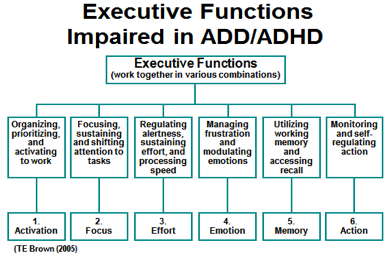There is actually a “becoming” a new mother or a transformation of identity when one becomes a mother. And if you have recently received a diagnosis of ADHD, you are beginning your journey of understanding how living with undiagnosed ADHD has impacted you. This includes learning how your brain works, and celebrating the beauty of your unique strengths because you have ADHD. Both include grief, exploration, education, compassion, and letting go. A common theme I see with my clients when navigating both motherhood and their diagnosis is a discovery of ADHD mothers and daughters across generations.
There are many reasons ADHD mothers and daughters are being diagnosed later in life.
- Research on girls and women didn’t start until the 1990’s.
- Girls and women generally don’t present the same as boys and men, especially when it comes to impulsivity and hyperactivity.
- Girls tend to be people pleasers. This can be a motivator for doing well in school contributing to more academic success.
- Girls and women are better at creating coping skills to mask symptoms but with that comes high anxiety.
Because many physicians and clinicians don’t think to assess for ADHD, they often misdiagnose them with depression and anxiety. While these women may also have depression and anxiety as they are common co-occurring struggles, they are more likely to be depressed and anxious due to living with undiagnosed ADHD.
Often, women are diagnosed within the first few years of having a baby. This is because of masking and the gravity of transitioning into motherhood. And once she becomes a mother, she can no longer keep all of the balls in the air. It’s during these times that relationships between ADHD mothers and daughters can be further understood.
The demands of new motherhood are challenging for all new mothers, neurodiverse and neurotypical.
But having ADHD, even if you were diagnosed and adequately supported at a younger age, adds additional challenges. Here are a few ways they are different:
ADHD
- More easily overwhelmed because her brain sees everything going on around her, not filtering out what isn’t important, sending the message that everything is of equal importance and urgency.
- Even small transitions like going from feeding baby to changing baby to cleaning up take more mental and physical effort due to difficulty shifting attention from one thing to the next.
- Executive function deficits before baby, and the deficits exacerbated after delivery.
Neurotypical
- Can also feel overwhelmed but her brain can filter out what isn’t important right now.
- Small transitions are easy due to the ability to shift attention from one thing to the next.
- Executive function challenges after delivery but returns to full functioning as hormone levels readjust.

Women with ADHD are more sensitive to hormone shifts.
It doesn’t mean that neurotypical women aren’t sensitive to hormone shifts, they can be. However, there is an estrogen connection with ADHD. Let me explain.
Estrogen modulates the neurotransmitters, dopamine and norepinephrine. Dopamine is often referred to as the reward system which helps with motivation, working memory, attention, and mood. Norepinephrine (made from dopamine) also helps with activation, attention, thought, and memory.
This connection can affect both an ADHD mother and daughter similarly.
People with ADHD don’t process as much dopamine and norepinephrine as neurotypicals, so they start with a dysregulation of these neurotransmitters. However, for many women with ADHD, during pregnancy, as estrogen continues to rise, ADHD symptoms can diminish. But when her estrogen plummets right after birth, her ADHD symptoms exacerbate because now there is even more of a dysregulation of dopamine and norepinephrine.

In the book, ADHD 2.0 by Edward Hallowell, M.D. and John Ratey, M.D., there is discussion on how dramatic changes in the environment also impact ADHD symptoms. For many women, this creates the perfect storm that finally exposes her ADHD.
… when a woman gives birth to or adopts her first child, the demands on her organizational skills coupled with a loss of sleep (and if she’s given birth, bodily changes) really upsets the apple cart of her environment. Without the calm and order of her pre-baby life, she feels frenzied and unproductive. … sometimes what the world sees as garden-variety new motherhood or ‘mommy brain’ points to underlying ADHD, and only the upheaval of an environmental change reveals it.
As she navigates how her brain works, it is also navigating her identity as a mother that brings up the idea that her mother may also have been living with undiagnosed ADHD.
Research suggests that ADHD is 75% genetic. Other reasons can be toxins in utero, a traumatic brain injury, and psychosocial adversity.
ADHD is complex and many times comes along with other issues like OCD, anxiety, depression, and trauma. So how you were mothered can have many layers other than just ADHD alone. When a woman becomes a mother, part of her identity comes from how she does or doesn’t want to be as a mother, based on her childhood experience.
How you were mothered plays a part in your identity as a mother.
For example, if your mother was constantly doing something (as if driven by a motor) and never stopped to relax with you, or ask you how your day was, or never felt like she was present with you, then this might not be a behavior you want to adopt. You might want to try and be as present as you can with your children.
I chose this example for a reason. Women who struggle with hyperactivity, external or internal, feel like they always need to be on the go. Their brains are also going a million miles a minute and there are a lot of “shoulds” going on in their internal dialogue that make it difficult to stop, rest, and reset. The “shoulds” message can be pretty specific to women in general but if she can’t relax when there is an opportunity to relax, it can feel intolerable. And the distorted thinking of “should and ought to” doesn’t help.
Another example that highlights the strengths and gifts of ADHD is if your mother was creative. Maybe she decorated the house with beautiful colors, lights, and candles during holiday celebrations, or had beautiful, elaborate ways of honoring your birthday where you felt special and celebrated, right down to the impeccable wrapping and bows on your presents. Or she was artistic and encouraged you to express yourself through creativity and celebrated you when you did so. This may be a value you want to share with your children.

Social expectations of women and mothers are definitely NOT ADHD-friendly, so it is important to give yourself compassion if your deficits don’t meet those expectations.
These expectations aren’t fair or reasonable for most mothers. The more authentic you are to yourself, using your critical thinking skills and curiosity, living by your own value system, and having a growth mindset vs a fixed mindset, will ease your transition into motherhood while living with ADHD.
As I mentioned earlier in this article research in girls and women with ADHD is only about 30 years old, so your mother, grandmother, or aunt wouldn’t have had the opportunity to be diagnosed. And there is a generation gap in awareness and understanding of ADHD. Another barrier might be parents of the boomer generation were taught to ignore painful emotions, pretend everything is fine, children are to be seen and not heard, and shaming is a parenting strategy to get kids to behave because their parents were from the silent generation. There are often cultural reasons as well.
On your journey of exploring how your brain works, you might notice similarities with your mother.
This might provide some insight into her behavior and struggles as a parent from a new lens of compassion. If she is open and you feel safe, you may begin to discuss ADHD and what you are learning about yourself. And who knows where that could lead. ADHD mothers and daughters can be a positive support for one another.
As you enter into this new phase of life and understanding of yourself, be patient (although not a strength of ADHD) and kind to yourself. Take all of the time you need and focus on the strengths ADHD gives you. Find other new mothers who are neurodiverse and support from professionals who truly understand ADHD. It always takes a village in life and you don’t have to do it alone.
Jacqueline V Cohen is a Licensed Professional Counselor and ADHD Certified Clinical Services Provider. To learn more about her work, visit her website. You can also contact her by email.
*Although I acknowledge that not all new parents, birthing persons, or caregivers identify as a mother, for simplicity, I have chosen to use the language, mom and mother for this blog post.
Get your free copy of my e-book: Motherhood and ADHD
You will also receive a subscription to my newsletter.

No comments yet. You should be kind and add one!